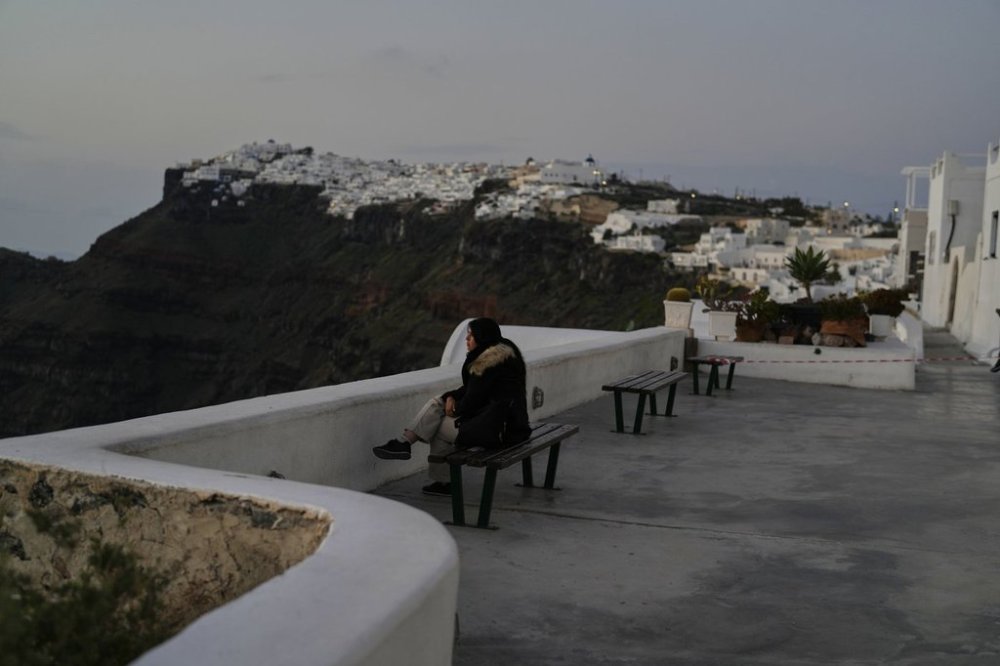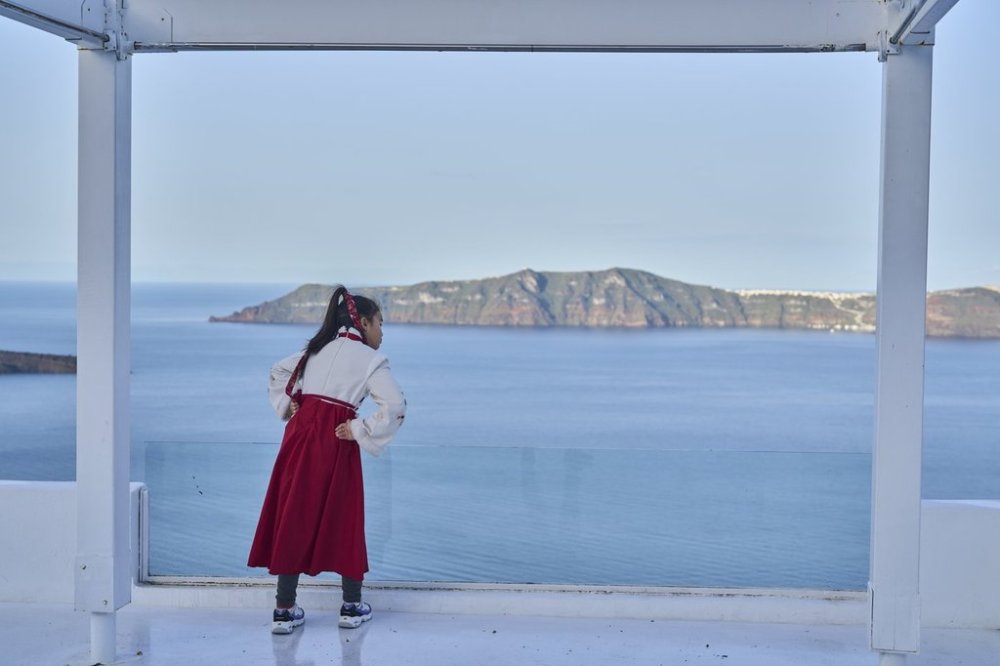As hundreds of quakes rattle Greek islands, a few brave tourists have Santorini to themselves
Advertisement
Read this article for free:
or
Already have an account? Log in here »
To continue reading, please subscribe:
Monthly Digital Subscription
$1 per week for 24 weeks*
- Enjoy unlimited reading on winnipegfreepress.com
- Read the E-Edition, our digital replica newspaper
- Access News Break, our award-winning app
- Play interactive puzzles
*Billed as $4.00 plus GST every four weeks. After 24 weeks, price increases to the regular rate of $19.00 plus GST every four weeks. Offer available to new and qualified returning subscribers only. Cancel any time.
Monthly Digital Subscription
$4.75/week*
- Enjoy unlimited reading on winnipegfreepress.com
- Read the E-Edition, our digital replica newspaper
- Access News Break, our award-winning app
- Play interactive puzzles
*Billed as $19 plus GST every four weeks. Cancel any time.
To continue reading, please subscribe:
Add Free Press access to your Brandon Sun subscription for only an additional
$1 for the first 4 weeks*
*Your next subscription payment will increase by $1.00 and you will be charged $16.99 plus GST for four weeks. After four weeks, your payment will increase to $23.99 plus GST every four weeks.
Read unlimited articles for free today:
or
Already have an account? Log in here »
Hey there, time traveller!
This article was published 04/02/2025 (269 days ago), so information in it may no longer be current.
SANTORINI, Greece (AP) — The hundreds of earthquakes that have rattled Greek islands on the Aegean Sea are a “seismic swarm” and could continue for weeks before eventually diminishing, the Santorini mayor told The Associated Press on Tuesday — pausing to chuckle as new tremors shook items on his desk.
“This phenomenon may play out with small quakes or a single, slightly stronger one, followed by gradual subsidence,” said Mayor Nikos Zorzos, adding he was cautiously optimistic after speaking to seismologists who described the swarm as a series of tremors of similar magnitude occurring in clusters.
Thousands of residents and seasonal workers have left the Cycladic Islands as quakes up to magnitude 5 have been recorded in the volcanic region since Friday. Ferry and commercial flight operators have added services to accommodate departures. More Greek islands closed schools Tuesday.

A handful of hardy tourists enjoyed having Santorini’s stunning views to themselves.
Santorini earlier canceled public events, restricted travel to the island and banned construction work in certain areas. The quakes have caused cracks in some older buildings, but no injuries have been reported.
Efthimios Lekkas, head of the state-run Earthquake Planning and Protection Organization, said the epicenter of the earthquakes in the Aegean was moving northward away from Santorini, and emphasized there was no connection to the area’s dormant volcanoes.
“This may last several days or several weeks. We are not able to predict the evolution of the sequence in time,” Lekkas told state-run television.
In Santorini’s main town, Fira, the narrow, whitewashed streets along the island’s clifftops were deserted — a rare sight even in the off-season — except for small pockets of tour groups, many from Asian countries.

Joseph Liu, from Guangzhou in southern China, said he had wanted to visit Santorini for years after seeing it in a documentary.
“This place is amazing, really beautiful,” he said, adding that the tour group leader had told him and others about the quakes before they arrived, “so it was not a surprise.”
Retired police officer and ship worker Panagiotis Hatzigeorgiou, who has lived on Santorini for more than three decades, said he has turned down offers to stay with relatives in Athens.
“Older residents are used to the earthquakes … But it’s different this time. It’s not the same to have earthquakes every two to three minutes. The main thing is not to worry,” he said, adding with a laugh: “Now we can listen to music alone and have coffee by ourselves.” ___ Associated Press journalists Lefteris Pitarakis and Petros Giannakouris in Santorini contributed.


